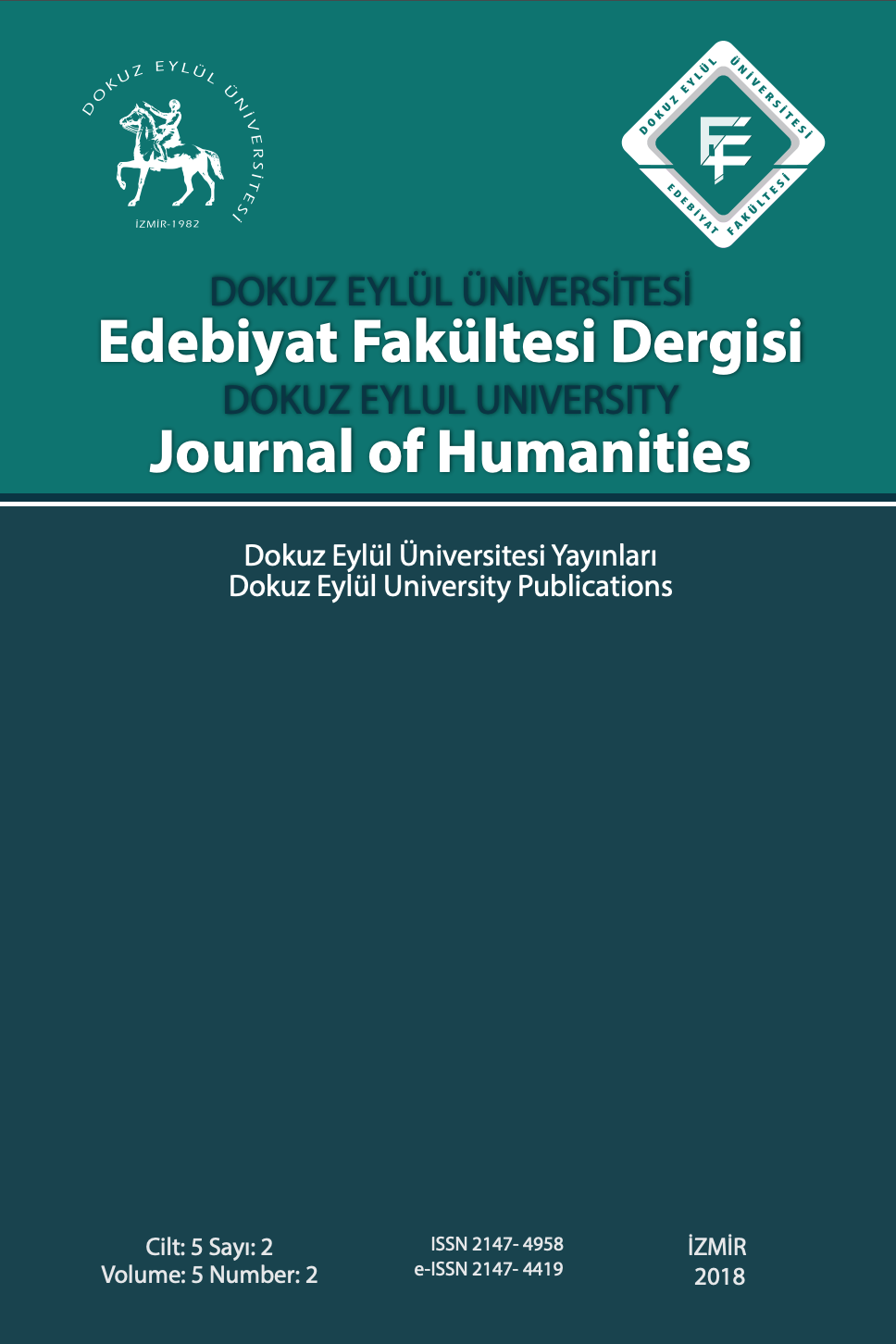PHAIDROS’TA İLETIŞIM VE FELSEFI YAŞAM TARZI ARASINDAKI İLIŞKI ÜZERINE
İletişim felsefesi, rhetorik, mit, diyalektik, konuşma, yazı, yaşam tarzı
ON THE RELATIONSHIP BETWEEN COMMUNICATION AND THE PHILOSOPHICAL WAY OF LIFE IN THE PHAEDRUS
Philosophy of communication, rhetoric, myth, dialectic, speech, writing, way of life,
___
- References
- Brook, T. (2010) ‘The Language of Love and Learning: Connecting Eros, Rhetoric and Knowledge in the Phaedrus’, The Midwest Quarterly, Pittsburg, 51.3 (Spring), pp. 254-269.
- Burke, K. (1969), A Rhetoric of Motives, California: California University Press
- Couthard, D and Keller, K (2012) ‘Technophilia, neo-Luddism, eDependency and the judgement of Thamus’ Journal of Information, Communication and Ethics in Society, Vol. 10 Iss 4, pp. 262-272.
- Derrida, J. (1981), Dissemination, Chicago: University of Chicago Press Ltd.
- Ferrari, G.F. (1987) Listening to the Cicadas: A Study of Plato’s Phaedrus, Cambridge: Cambridge University Press.
- Gadamer, H.G. (2003) Truth and Method, New York: The Contiinuum Publishing Company.
- Griswold, C.L. (1986) Self-Knowledge in Plato’s Phaedrus, New Haven: Yale University Press.
- Hadot, P. (1995) Philosophy as a Way of Life: Spiritual Exercises from Socrates to Foucault, New Jersey: Wiley-Blackwell.
- Peters, D J. (1999), Speaking into the Air: A History of the Idea of Communication, Chicago: University of Chicago Press Ltd.
- Lentz, T.M. (1983) ‘The Third Place from Truth: Plato’s Paradoxical attack on Writing’, Communication Quarterly, Vol. 31, No 4, Fall.
- Plato Phaedrus (2002), (translated Robin Waterfield), Oxford: Oxford World Classics.
- Rabbas, O. (2010) ‘Writing, Memory and Wisdom: The Critique of Writing in the Phaedrus’, Symbolae Osloenses, Norwegian Journal of Greek and Latin Studies, Volume 84, Issue 1.
- Rinon, Y. (1992) ‘The Rhetoric of Jacques Derrida I: Plato’s Pharmacy’, The Review of Metaphysics, Vol. 46, No 2 (Dec), pp.369-386.Serracino Inglott, P. (1987) Beginning Philosophy, Malta: Media Centre.
- Taylor, A.E. (1960) Plato The Man and His Work, Methuen: University Paperbacks.
- Werner, D. (2010) ‘Rhetoric and Philosophy in Plato’s “Phaedrus”’, Greece and Rome, Second Series, Vol 57, No 1 (April), pp. 21-46.
- ISSN: 2147-4958
- Yayın Aralığı: 2
- Başlangıç: 2011
- Yayıncı: Dokuz Eylul Üniversitesi Matbası
KORECENİN TÜRKÇE ROMANİZASYONU ÜZERİNE BİR ÇALIŞMA
CHRISTINE SWANTON’UN ÇOĞULCU ERDEM ETİĞİNE BİR BAKIŞ
ORTA ÇAĞ’DA BAMİYAN BÖLGESİNDE HÜKÜM SÜRMÜŞ DEVLETLER
PHAIDROS’TA İLETIŞIM VE FELSEFI YAŞAM TARZI ARASINDAKI İLIŞKI ÜZERINE
Hume's Response to Mind-Body Problem/Hume'un Beden Zihin Problemine Cevabı
MASCULINITY IDEOLOGY AND THREAT TO MANHOOD AS PRECURSORS OF VIOLENCE AGAINST WOMEN IN TURKEY
